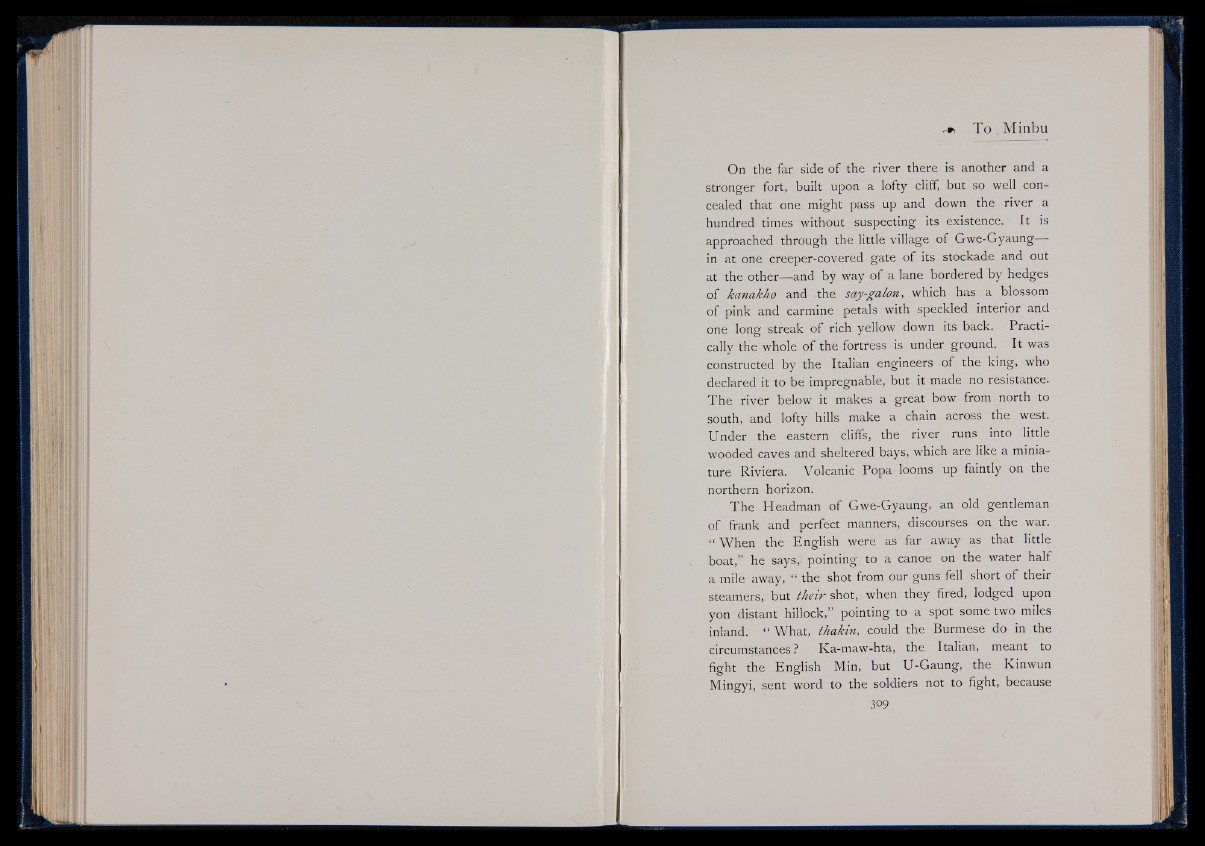
To. Minbu
On the far side of the river there is another and a
stronger fort, built upon a lofty cliff, but so well concealed
that one might pass up and down the river a
hundred times without suspecting its existence. It is
approached through the little village of Gwe-Gyaung—
in at one creeper-covered gate of its stockade and out
at the other— and by way of a lane bordered by hedges
of kanakho and the say-galon, which has a blossom
of pink and carmine petals with speckled interior and
one long streak of rich yellow down its back. Practically
the whole of the fortress is under ground. It was
constructed by the Italian engineers of the king, who
declared it to be impregnable, but it made no resistance.
The river below it makes a great bow from north to
south, and lofty hills make a chain across the west.
Under the eastern cliffs, the river runs into little
wooded caves and sheltered bays, which are like a miniature
Riviera. Volcanic Popa looms up faintly on the
northern horizon.
The Headman of Gwe-Gyaung, an old gentleman
of frank and perfect manners, discourses on the war.
“ VTen the English were as far away as that little
boat,” he says*' pointing to a canoe on the water half
a mile away, “ the shot from our guns fell short of their
steamers, but their shot, when they fired, lodged upon
yon distant hillock,” pointing to a spot some two miles
inland. “ What, thakin, could the Burmese do in the
circumstances ? Ka-maw-hta, the Italian, meant to
fight the English Min, but U-Gaung, the Kinwun
Mingyi, sent word to the soldiers not to fight, because
309